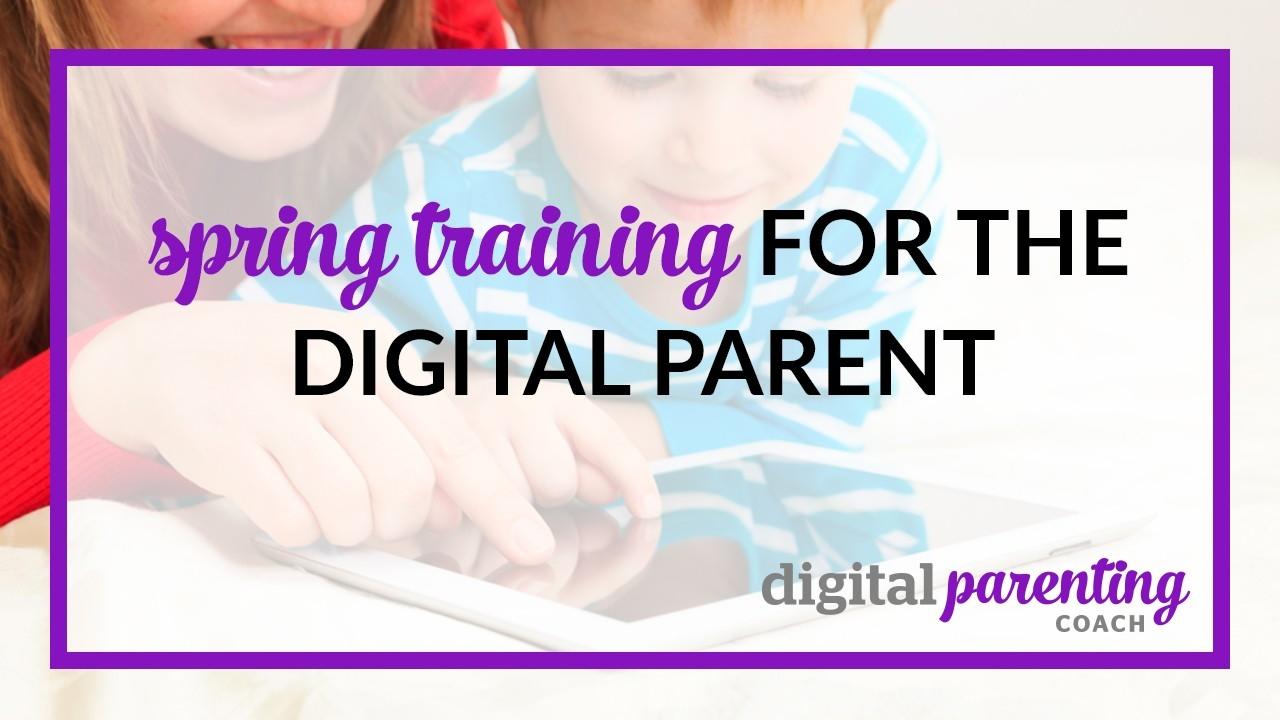
Spring Training for the Digital Parent
Feb 03, 2018Internet, mobile phones and wi-fi connected devices are ubiquitous. And this "everywhere - at all times" Internet access may cause parents to feel frustrated by their lack of concrete technical knowledge and expertise.
So what can you as a parent do to protect your children, when it seems as though your children are more tech savvy than you are?
Communicate with your child.
Stay involved in your child’s online activities by talking with them and showing interest in their online world. Ask them to show you their favorite websites or the latest app or online game. Use The Parent Zone WWW approach as a guide when communicating with your children. Who are they talking to? What are they doing online? Where are they going online?
Digital footprints, comments and photos are forever.
“If you can’t say something nice, don’t say anything at all” is a golden rule online. Teach your child that online activities – stay online forever. They may not be thinking about university applications or future employers, but protecting digital reputation is crucial today.
Set time limits for Internet and cell phone use.
Set guidelines with respect to Internet and cell phone use and learn the warning signs of too much online time: skipping activities, meals and homework; weight loss or gain; falling grades. If you have younger children, set boundaries now. If you have older children, incorporate new rules with new devices. One family used this bedtime ritual: hugs, kisses, devices off and Smartphones handed over.
Stay involved and stay current of solutions.
We may be in the online world, but you are still a parent and as a parent, preparation and common sense are vital tools. Share with other parents or your child’s teacher or school director. Ask your parent teacher association to provide an Internet safety talk. If you are a bit more technologically inclined, roll up your sleeves and get online and research the available resources (including the freebies) from sources such as FOSI, SafeKids, Connect Safely, Netsmartz, Common Sense Media or Pew Research Internet Project, to name a few. (And for the legally inclined, dig into those terms of use on your child’s sites.)
Be a model for your child.
Yes, I’m calling you on it. No texting and checking your own social media accounts during dinner or family time. Get back to the basics and spend uninterrupted unconnected quality time with your child.
If you face an online issue: don’t panic. Parent.
If you are faced with an online issue, don’t immediately remove your child’s electronic devices if s/he comes to you with a problem. Don’t criminalize your child for inappropriate behavior. Use the issue as a teaching point and a communication opportunity.
Last word of advice: continue parenting your child in the online world as you do in the offline world - by using your own good common sense and experience. Be supportive, set boundaries and offer opportunities to explore and develop.
Even if you understood everything about Facebook security and settings yesterday; today you need to learn about Instagram and tomorrow who knows what it will be. The type of media or website is irrelevant, you must teach your children to make the right choices. Think of it this way, you do not teach your children to walk across one boulevard, you teach them how to cross any street safely.
Don't miss out!
Get all the latest digital parenting news delivered to your inbox.
We hate SPAM. We will never sell your information, for any reason.

